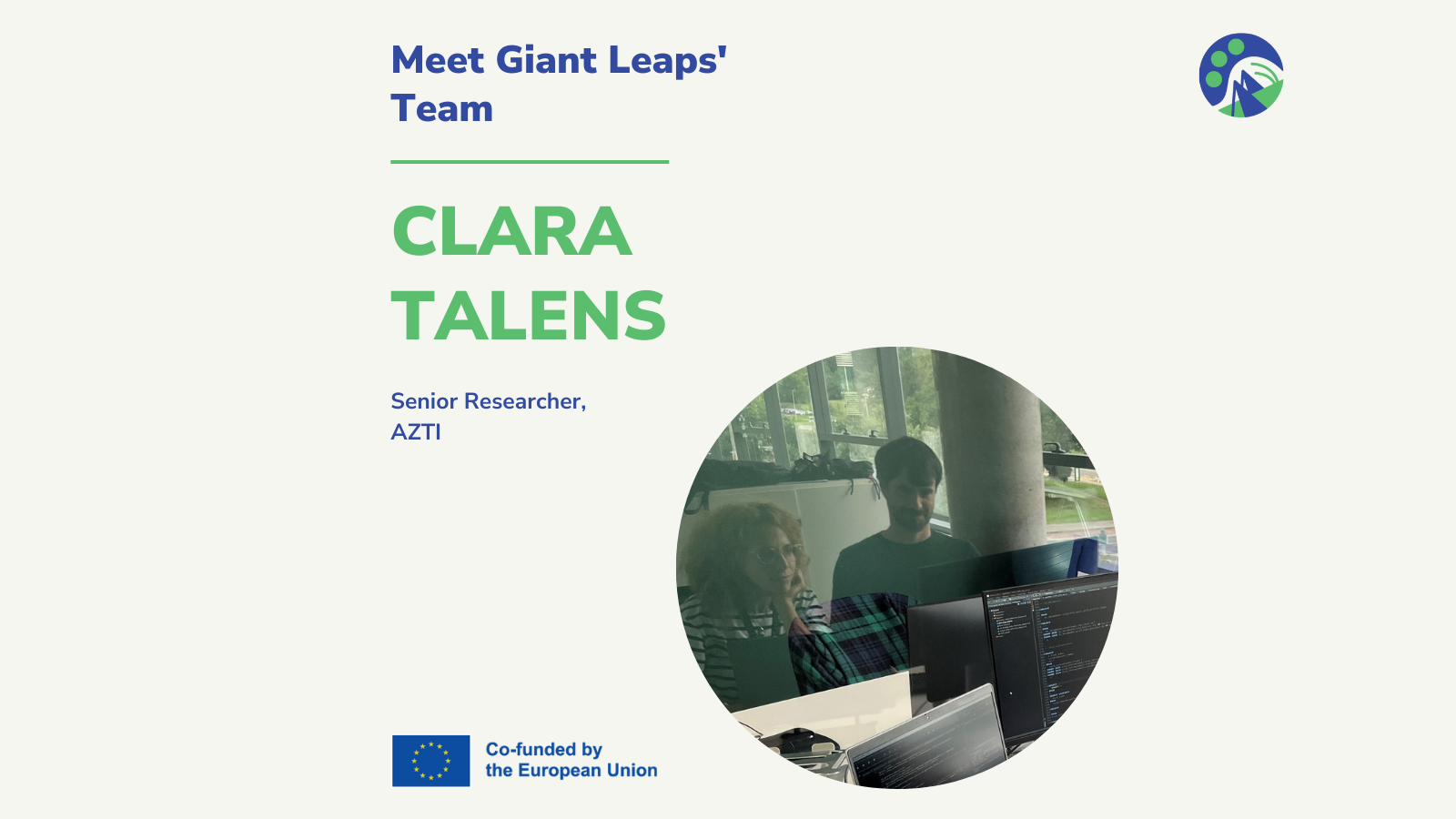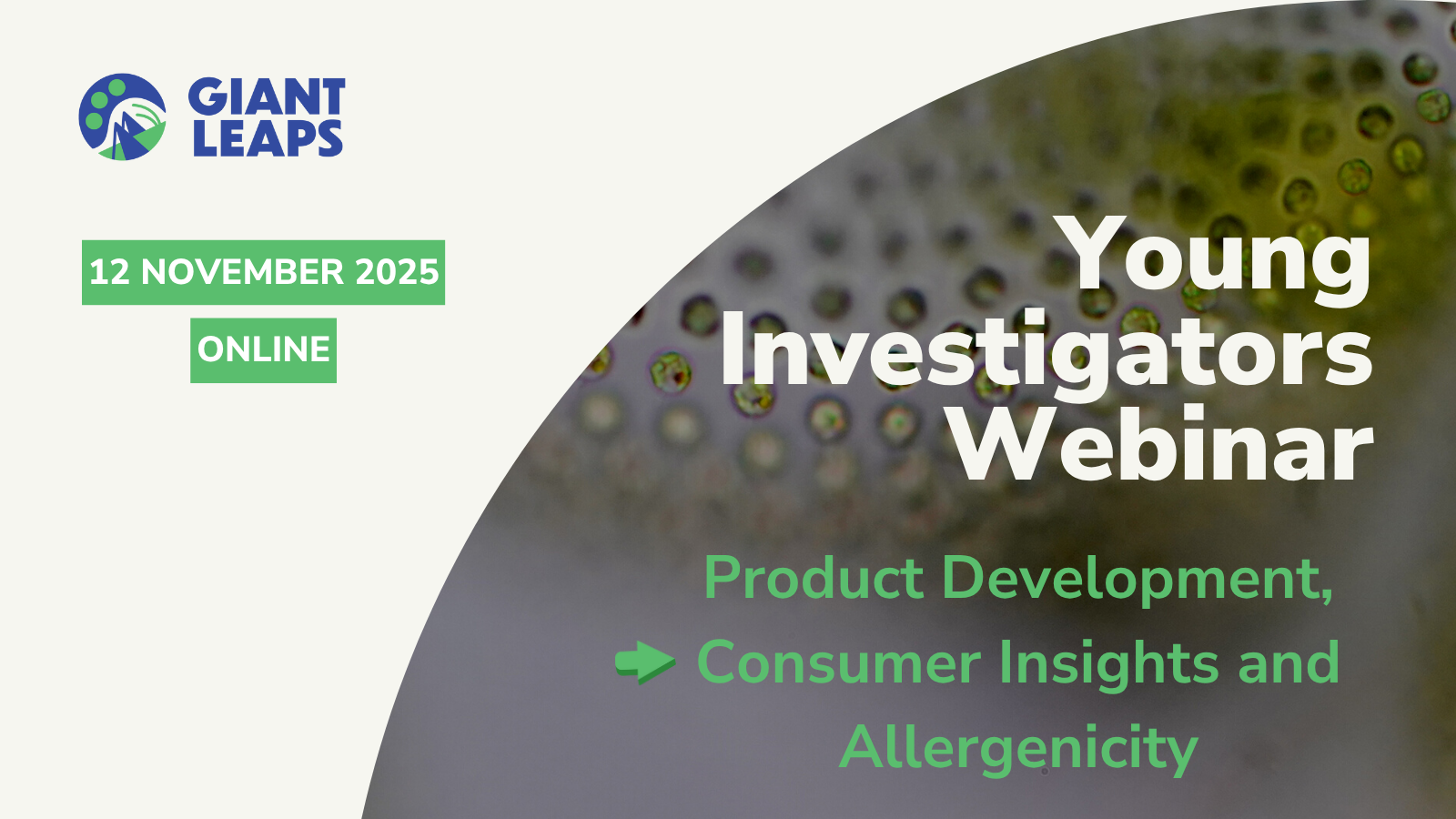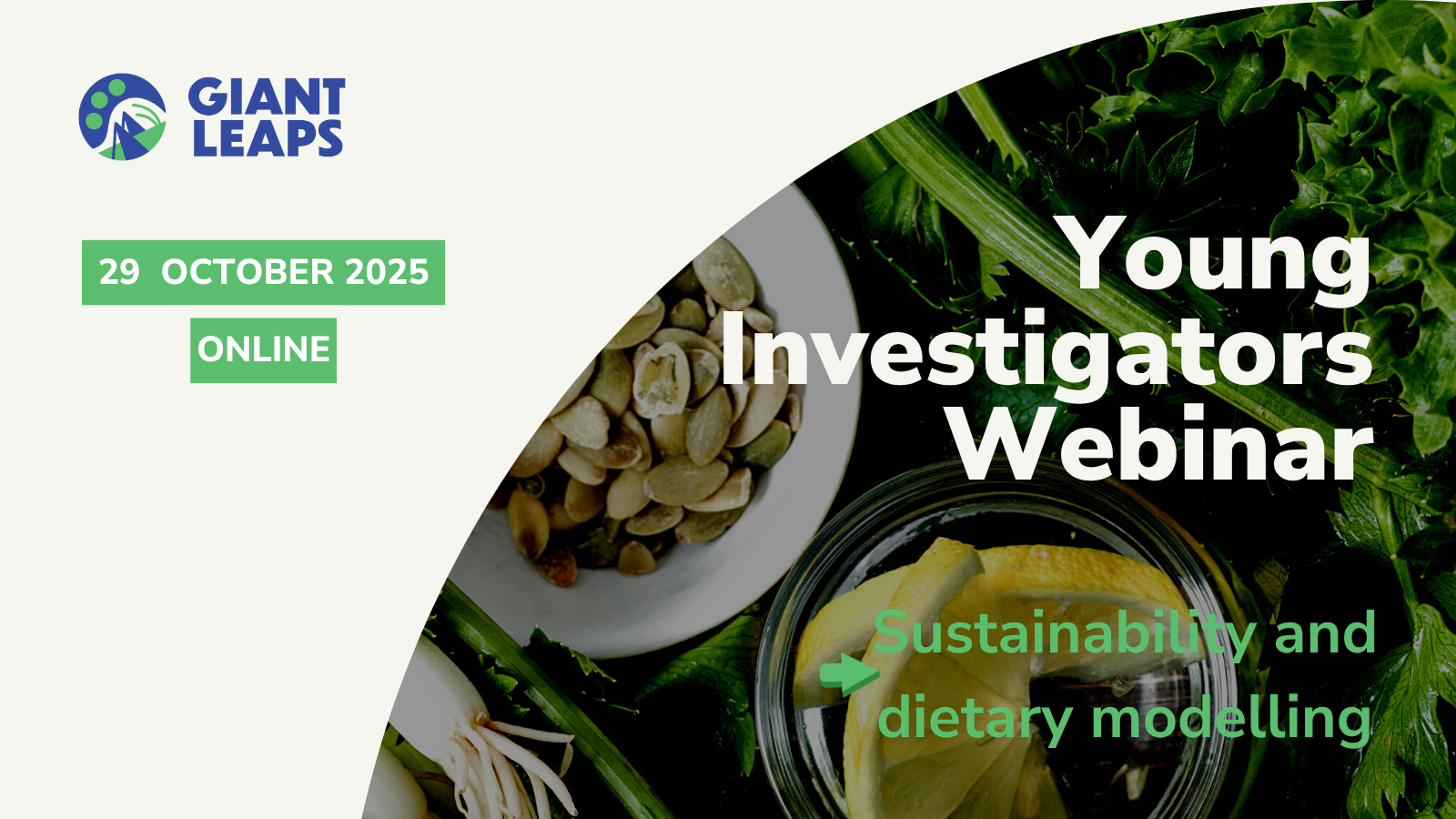Interview with Clara Talens, Senior Researcher at AZTI

Clara Talens, Senior Researcher at AZTI, shares insights in her role in the Giant Leaps project. Clara, participates in Work Package 6: Data integration and platform, coordinated by DIL and alongside other partners including IRIS and GreenCoLab. AZTI also participates in WP7: Optimising the dietary shift.
Clara, could you please tell us about your work position and the company you are associated with?
I am a senior researcher at AZTI, a scientific and technological center based in Bilbao, Spain. My background includes a degree in Agricultural Engineering, a Master’s in Biosystems Engineering from UCD Dublin, and a PhD in Food Science and Technology from UPV Valencia. For over 15 years, I’ve led various publicly and privately funded research and innovation projects. At AZTI, my work focuses on developing healthy and sustainable ingredients, data-driven formulation techniques and consumer-oriented food product development. This involves everything from conceptualization to industrial process design and scale-up. My research primarily focuses on modeling and optimizing the nutritional and sensory properties of food, with a particular emphasis on texture, all within the context of sustainable nutrition.

Harvesting winter peas for protein functionality and digestibility analysis as part of other regionally-funded projects coordinated by AZTI.
Can you tell us more about what AZTI does?
AZTI is dedicated to developing sustainable and healthy food solutions. Our work spans from conceptualization to prototyping and industrial scale-up. We use advanced data platforms, deep learning servers, and software to analyze the impact of food ingredients, formulation, and processes on nutrition, health, and sustainability. Our aim is to support the development of food systems that are both innovative and sustainable.

AZTI’s 1000 m2 pilot plant for food processing technologies

AZTI’s food structure lab
Why is it important for you to be part of the GIANT LEAPS project?
Being part of the GIANT LEAPS project is crucial for us because it aligns with AZTI’s mission to advance sustainable food systems. The project allows us to contribute our expertise in data integration and AI-driven food technology, helping to drive innovation in the field. It’s an opportunity to work on solutions that will have a tangible impact on sustainable food production and consumption.
What is your role in the GIANT LEAPS project?
In GIANT LEAPS, I contribute to integrating data to assess and predict the impact of alternative protein ingredients on the physicochemical, sensory, and nutritional properties of foods. I collaborate closely with Gerard Marrugat, who leads the Artificial Intelligence (AI) components of the project. Together, we ensure that the data integration process is rigorous and meaningful, creating robust AI models that offer valuable, evidence-based insights to various stakeholders, including the scientific community, the food industry, policymakers, and the general public.

Despite its growing popularity, AI is a complicated topic for many, especially when applied to an apparently unrelated realm. Could you explain your work combining AI and food innovation in simpler terms and provide a concrete example?
I basically use AI to understand how different ingredients, like alternative proteins, affect food properties such as texture, taste, and nutritional value. For example, if we’re replacing meat with pea protein in a product like a sausage, we need to know how it will impact the texture and flavor. We start by collecting data on pea protein's performance in different food formulations. Then, we use AI to analyze this data and predict how changing the amount of pea protein or combining it with other ingredients will affect the final product. We test these predictions in the lab and adjust the formula based on the results. Essentially, we use mathematical modeling to create better, healthier, and more sustainable food options by understanding ingredient interactions.
What is one pitfall in data collection or analysis you've encountered in your career that AI has helped overcome?
One major challenge has been dealing with incomplete or inconsistent data. Traditional methods often involve manually cleaning and normalizing data, which can introduce bias or errors. For example, when optimizing formulations with alternative proteins like pea or insect flour, we sometimes faced issues with data from different studies being incompatible or missing key information. AI has significantly improved this process by efficiently handling diverse datasets, identifying and filling in missing data, and normalizing information from various sources. This has made our analyses more accurate and reliable.
Given AZTI’s commitment to advancing sustainable food systems, how do you foresee the findings and innovations from the GIANT LEAPS project impacting the food industry and public policy in the EU?
For the food industry, GIANT LEAPS innovations will provide tools and insights to develop more
sustainable and nutritionally optimized products. By improving the formulation of alternative proteins, manufacturers
can better meet consumer demands for healthier and sustainable food options while also reducing product development time
and costs.
For public policy, the project will generate valuable data on the environmental, economic, and social impacts of
alternative proteins. This information will support the development of policies that promote sustainable food production
and consumption.
Additionally, the project will contribute to creating interoperable data systems, enhancing collaboration between
researchers, industry players, and policymakers, and fostering a coordinated approach to food sustainability
challenges.



